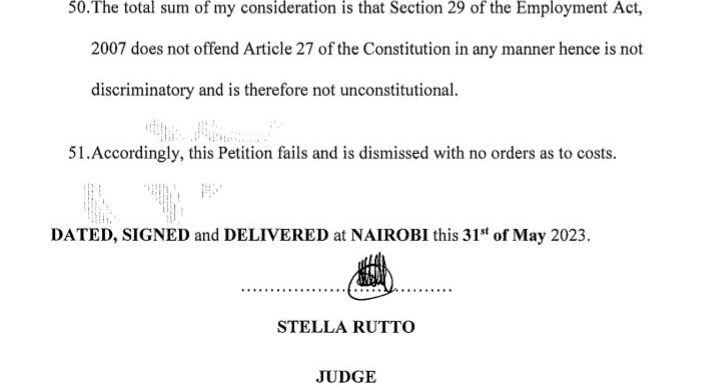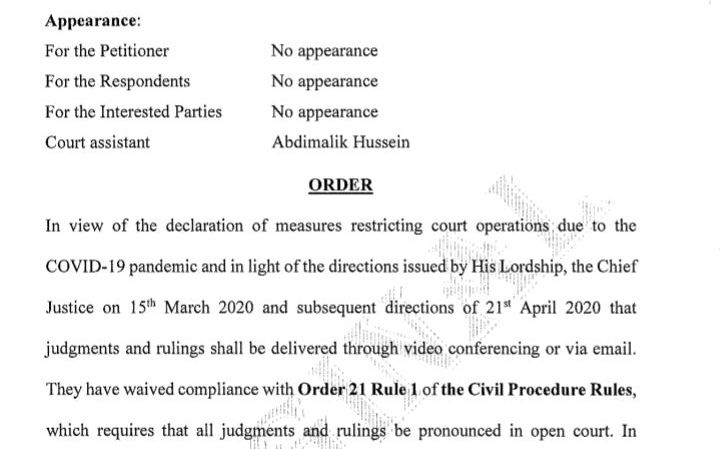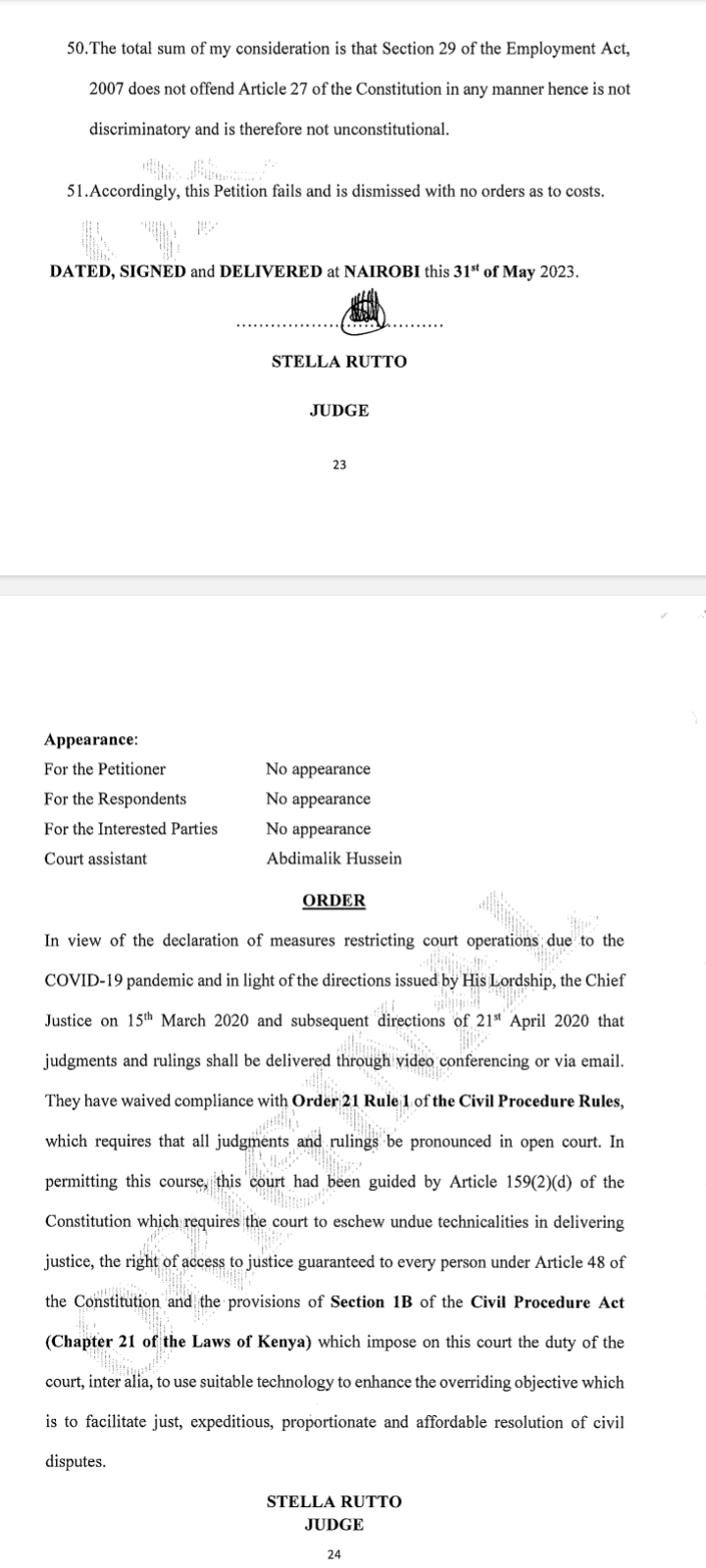

The Government of Kenya has won a landmark case in the Petition by Petitioners to have three months consecutive paternity leave for men when their spouses gives birth unlike previous ten working days
In a Petition filed before Milimani Court by Dr Magare Gikenyi Benjamin against Ministry of Labour and Social Protection was entirely challenged on 2022 by the Office of Attorney General and Department of Justice
According to an Affidavit sworn by Cabinet Secretary Florence Bore, Ministry of Labour and Social Protection and filed in Court by the Hon. Attorney General, Justin Muturi noted that, “two weeks paternity accorded to men involved many stakeholders; and took several years of public participation and cannot be thwarted pointlessly,”.
“Two weeks granted for a man to bond with new-child was not discriminatory, men do not carry pregnancy and do not breastfeed. The child does not require its father in the formative stages hence cannot be cited as discrimination,’’. CS Bore wrote
Ms Florence Bore defended employers pointing out that three months sabbatical leave after the birth of a child, will work against many employers who have a heavy burden of shouldering the absence of child-bearing women
She further averred that employers must also incur extra cost of having a replacement in the intervening period over and above paying full pay to a man to stay at home doing menial jobs
“The main work of the Governments all over the world is to protect investments and to dissuade policies that discourage investment. Therefore, three months paternity leave for men will adversely affect men and wreck families since companies and other employers, may resort to lay-offs to protect their investments compounded further by COVID-19 pandemic,’’ She wrote, challenging the Petitioner.
The Ministry of Labour and Social Protection had intensified fight seeking court to decline all the prayers by the petitioner as that, did not make a case to warrant application of the same be dismissed with no cost incurred
Dr Gikenyi sought the court to declare section 29 of the employment act, 2007 unconsitituational in so far as it grants different durations of maternity and paternity leave to female and male employees
He further termed the said section as discriminatory contrary to Article 27 of the Constitution of Kenya, hence avers that the same is unconstitutional and therefore invalid, null and void ab initio
Petitioner, had argued that the said differentiation of duration of maternity and paternity leave was not fair a differentiation. He contended that according to the constitution, both men and women are equal before the law and Article 27 prohibited discriminatory of any nature
However, in her ruling dated 31st May, that favoured government from Judge of the High Court Stella Rutto, ordered that the petitioner did not back up its case with statistics, and granting both female and male employees an equal duration of 3 months parental leave-will have high cost implications in the labour sector thus yielding undesirable results.
“….and if there would be any discrimination in the work place, the constitution and the employment act have put in place safeguards to protect employees.
The total sum of my consideration is that Section 27 of the Employment Act doesn’t offend Article 27 of the Constitution of Kenya, 2010 and hence not discriminatory or unconstitutional and therefore the Petition stands dismissed with no orders as to costs
The suit was filed in the Employment and Labour Relations Court at Nairobi, Petition number E001 of 2022 in the matter of unequal duration of maternity and paternity leaves and in the matter of section 5 and 29 of employment Act 2007


**prostafense official**
ProstAfense is a premium, doctor-crafted supplement formulated to maintain optimal prostate function, enhance urinary performance, and support overall male wellness.
**neurosharp official**
Neuro Sharp is an advanced cognitive support formula designed to help you stay mentally sharp, focused, and confident throughout your day.